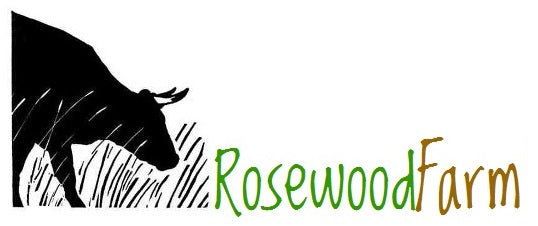
What's your beef with farming?
The Guardian revealed yesterday that 'industrial-scale beef farming comes to the UK', and it's likely that this kind of reporting will lead to some people reducing their consumption of beef - but is that really the best solution?

Scenes like these will no doubt elicit strong feelings from the public about the welfare of animals contained within these 'feedlot' style rearing systems, but I tend to think that everyone is missing a trick. It may be that animals prefer to be in grass fields with hedgerows and trees for shelter, or they may actually enjoy having their food delivered to them in concentrated, grain form. Proponents of more industrial systems like to point to the fact that management can be better on a large farm that is able to monitor animals more closely and even partake in regular veterinary checks to ensure high welfare. As we cannot ask the animals which system they prefer, that argument is likely to run & run.
However, whilst we waste our time debating whether a cow prefer grass or corn, there is another factor that we cannot ignore - the effect that more industrial farming systems have upon our wildlife. Now, I'm a big fan of everyone eating more beef in order to save our wildlife, but I also stress that we need to be sure that the beef we eat does actually help to preserve declining wildflower meadows, and doesn't speed up their decline.
Recently I wrote about the plight of the Curlew, and if you have read the book that I recommended in the blog, Curlew Moon, you will already know about the effect that rapidly intensifying farming is having on birds such as the Curlew & Corncrake over in Ireland. The country the main source of UK beef imports & much of this beef supplies supermarkets & fast food outlets. Figures from the AHDB show that in 2016 the UK imported 263,500 tonnes of beef & veal, a massive 22% of our total consumption!

It's often suggested that increased industrial farming is driven by a greater demand for meat, but when we take a look at the long term figures for the UK we see that each of us are now eating 24% less beef than we were in 1961. Even accounting for the increased population we are still eating 11% less beef as a country. So if we are being told to eat less meat, is this actually contributing to more industrial farming? I think so.
The problem with eating less is that, with lower demand, the price of meat drops and farmers have to produce it ever more cheaply. As identified by The Guardian report, this indutsrialisation is driven by cost, not volume, and the less we eat, the more intensive farming must become to survive, with even less money leftover to make provision for wildlife.

People say to me that farms like Rosewood simply can't produce enough grassfed beef sustainably to feed the world at current levels. My response is always - not if we don't try to! I think that to encourage farmers to produce beef the Rosewood way we need to demand more, not less, grassfed beef. If we can produce it then everyone, including our wildlife, is happy. But what happens if we can't produce that much? Well, the demand would then exceed the supply so the market price is forced up and people eat less as a consequence - it's a real win-win scenario.
Eating less beef may be a consequence of a move to more sustainable production systems, but it is certainly not a prerequisit and buying less does nothing to encourage farmers to change. I also believe it is highly damaging to tell people to eat less because those most receptive to that message are already supporting farms like ours - a double blow on the back of low prices.

As a small farm selling all our own produce we do receive a higher price than if we took our animals to the local livestock market, however we lack the economies of scale that large retailers enjoy. Our customers, too, receive more individual attention, which all comes at an extra cost. I'm pleased to report that our sales are up by 27% year-on-year in 2018 BUT we're also serving more customers with the average spend decreasing which pushes up the cost of selling by one fifth!
I understand that not everyone can afford to eat Rosewood beef every day, but there are a few things you can do to help us out & keep industrial farming at bay;
1. Buy in bulk; the more you spend at once time, the lower our costs
2. Do more home cooking; buying a joint to slice up for sandwiches throughout the week - you'll save money and avoid industrially produced meat
3. Return the packaging; not only does reusing our shipping boxes reduce waste, it also saves us money!
4. Share this blog with your friends - word of mouth is our best endorsement, and is our cheapest way to advertise!
Thank you.




